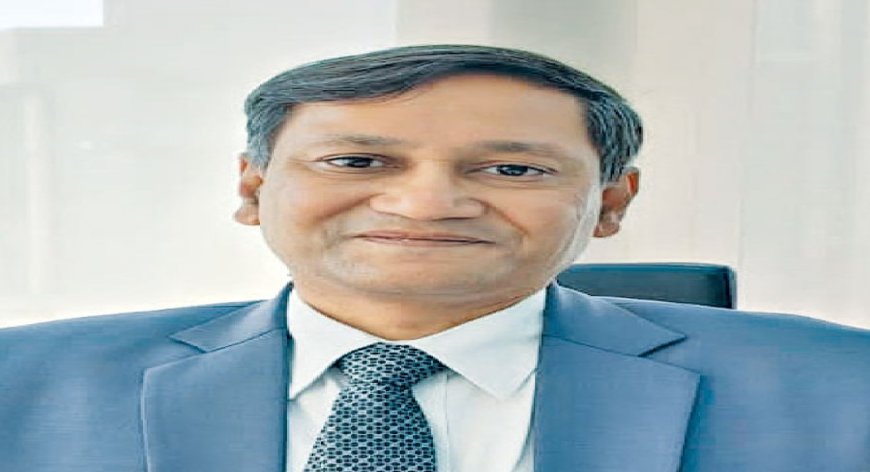BEML has exported more than 1300 units of mining and construction equipment to 69 countries.
Shantanu Roy, Director (Mining & Construction Business), BEML How do you see the government’s ‘Make in India’ programme and mission motivating industry to participate in it? How is this helping the construction equipment sector to improve its technological status and

How do you see the government’s ‘Make in India’ programme and mission motivating industry to participate in it? How is this helping the construction equipment sector to improve its technological status and competitiveness in the global market?
Indian construction industry is one of the most important sectors of the economy as it stimulates infrastructure-building and create growth opportunities for other industries in the economy. ‘Make in India’ campaign has also started gaining ground in India and is positively impacting this segment.
The construction equipment Industry has taken several initiatives towards indigenizing its products. Almost 90% of CE products by volume are more than 50% indigenized already. However, a key challenge still faced by the industry is its high dependence on import of precision components, hydraulics, undercarriages and electricals/electronics.
Investment in mother technologies therefore needs to be incentivized under Government’s AatmaNirbhar Bharat initiative, through incentive schemes such as PLI (Production Linked Incentive), etc., to help the CE Industry realize its Vision 2030 and make India a manufacturing and export hub for CE.
Through this policy we would be achieving the following objectives: Reduce dependency on imported equipment; Technology & Skill development in the country; Local employment generation; Ease of maintenance of equipment; Saving of precious foreign exchange; Contribute to country’s GDP; Self-reliant India; Increase Export opportunities.
What are your views on making India as a global construction equipment manufacturing hub?
Considering that Indian construction equipment meet global quality standards our country has the potential to become a global hub for manufacturing construction equipment.
To achieve this, we need to develop a robust supply chain ecosystem to eliminate supply chain disruptions, increase localization levels & ensuring world-class quality standards at an optimal cost of procurement and operation.
Further, India’s Construction Equipment Market size is projected to grow at CAGR of 23.3% during 2021-27. The growth can be attributed to rising investment in the growing public & private infrastructure, FDI reforms for construction sector, highway projects and growing economy has led to the overall surge of construction equipment market in India. In addition, government ambitious projects such as Smart city, Golden Corridor, Housing for all, restructuring and expansion of railways, etc. would bolster the growth of the construction equipment.
Tell us on your export market and important initiatives to cater to the requirement of International market?
The construction sector has made concerted efforts to automate its processes, resulting in higher demand for construction equipment. The upgradation of equipment in keeping with new emission norms will open-up more global markets, thus pushing equipment exports.
BEML has exported more than 1300 units of mining and construction equipment to 69 countries. BEML has also exported its Defence products to Bhutan, Suriname, Honduras and Israel.
The notable international mining reference sites are in Indonesia, Thailand & Zimbabwe in Coal, Tunisia, Algeria, Morocco & Syria in Phosphate and Myanmar in Jade. Repeat orders from Syria and Tunisia for BEML products are the testimony for its commendable performance.
BEML has recently executed an order from Ministry of Economy, Planning and Regional Development (MOEPRD), Government of Cameroon for supply of 71 units of equipment valuing USD 20 Million. Further, BEML is exploring opportunities from Russia and other countries.
Give us an understanding of your company’s performance in the last 3 years?
For the year 2020-21 & 2021-22, the company has grown by over 16% consistently. However, during 2022-23, due to current geopolitical situation and delay in supply of input materials from overseas vendor has resulted in low availability of material for production. Also, under Metro segment, the civil works of MMRDA was not completed and they have requested to hold delivery of cars. Also, BEML Limited has capacity limitation for storing completed train sets. Hence, the cars worth orders around Rs. 400 Cr. could not be manufactured during 2022-23. This has resulted in lower sales via-a-vis previous year.
CE manufacturers are now under pressure to manufacture machines which are not only cost effective, but also comply with the emission norms. What are your views on it?
The present construction equipment market demands a competitively priced equipment, embedded with automation, advanced technologies, options for usage of alternate fuels and with new emission norms.
Standardisation of equipment prices becomes a challenge due to competitive market and buyers opting for lower-priced equipment. It becomes a challenge for equipment manufacturers to price their products to maintain profit margins as well as remain cost competitive with advanced features.
BEML is regularly upgrading its equipment by incorporating latest technological features, latest emission norms compliant engines and safety features on its range of Construction equipment for optimum reliability and productivity with a robust action plan with emphasis on quality along with cost competitiveness.
What are the challenges that you face and what are your suggestions to further ease a business-friendly climate?
The Construction Equipment (CE) Industry’s “Vision Plan 2030: Building the Nation” can only be achieved by unlocking this industry’s true potential through sustained demand creation, building a robust operating eco-system and building a stable foundation. The CE industry eco-system is characterised by a large number of players including OEMs, suppliers, bankers; financiers, dealers amongst others.
There is a great scope and potential in manufacturing, given its demographic dividend and reasonably cheap labour. However, larger investments, upskilling of workforce and upgrading infrastructure are some of the areas where more work must be done. More compliance is required to boost the manufacturing capability here in India. Some of the Main hurdles which CE manufacturers face are: Increase in input cost, due to increase input commodity prices.
Hits: 108








